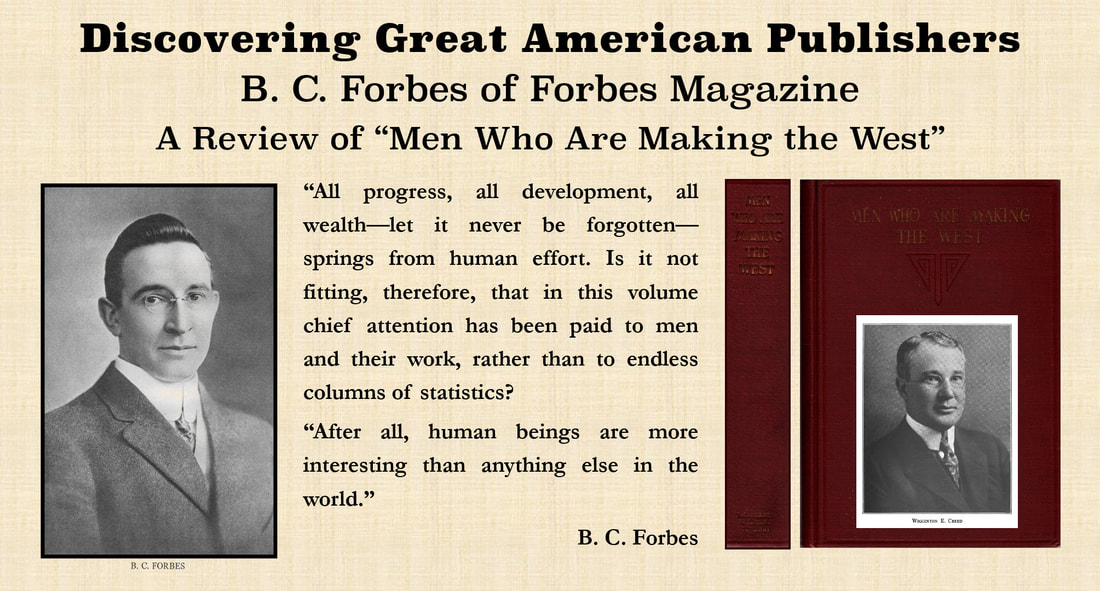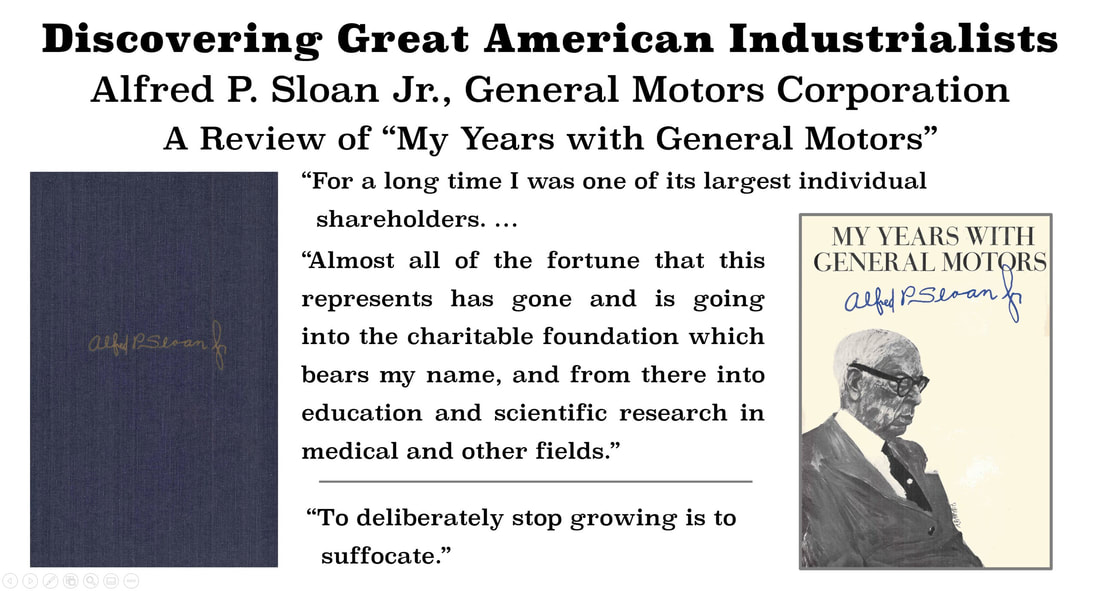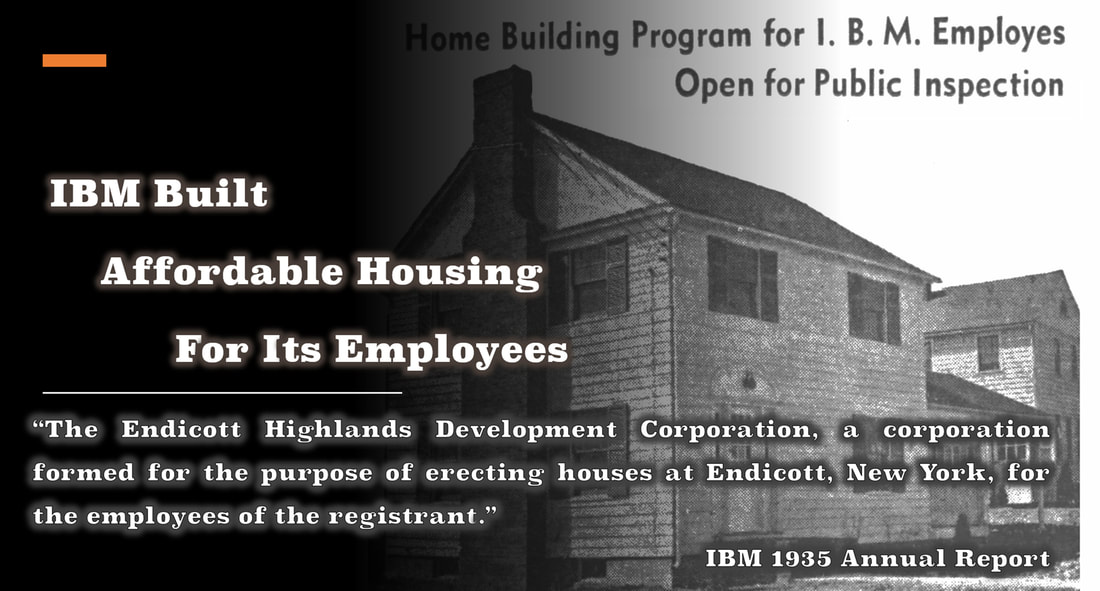A Quote from Wigginton E. Creed on a Businessman's Obligations to Society."The high road to greater progress runs along the line of cooperation between business and the public. . . . The businessman must work out his own salvation, without asking or expecting too much from others. His attention must be concentrated as much upon what he can give to the cause of human progress as upon what he can get. . . . "At all times, the business man must be conscious of his obligation to help to right what seems wrong, or, in the light of more knowledge, may hereafter seem wrong. If he is slow to do this, if his attitude is recalcitrant, he may find himself overtaken by public ownership or strangled by regulatory legislation hastily applied and poorly conceived, an expression of retaliation and not of sound judgment. "He [or she] can avoid these results by recognizing the tendencies of intelligent public opinion and by cultivating an idealism which shall precede and not follow the public conscience. He [or she] must let the public know what he is doing and why." Wigginton Ellis Creed, 1923 Select the image or link below to read the book review of Forbes' "Men Who Are Making the West."
0 Comments
Are Business Leaders Afraid of Sloan's Concept of "Coordinated Decentralization?"Are the chief executives who are breaking up the largest and best of America’s corporations making the right decision? Alfred P. Sloan would probably remark that the weakness in these institutions isn’t within the size and scope of their corporations, but in their top executives’ limited thinking and over-centralization of their organizations. Alfred P. Sloan’s book My Years with General Motors which was published in 1964 established his concept of leadership based on “coordinated decentralization.” A quote of Sloan’s from B. C. Forbes’ book the Automotive Giants of America published thirty-eight years earlier—in 1926, documents that this was not a new perspective for him but an overriding feature of his unique leadership style: “I never give orders. … It is better to appeal to the intelligence of a man than to the military authority invested in you. … You must grant a large measure of responsibility to the man placed in an important position. Such a man has, of course, unusual ability, unusual brains. But it is often hard to bring home to such a man in such a position that he does not know it all, and that he could profit by counselling with others. … “It is often extremely difficult to get a man [an executive] in the frame of mind where he will gladly seek to gather from other people in the organization what would offset … his [or her] own weakness. Yet this must be done in a large organization to bring about a maximum of efficiency and effectiveness.” Although this concept was not articulated directly by Watson Jr. when he reorganized the IBM Corporation after the death of his father, coordinated decentralization was at the heart of how the son kicked in the IBM’s growth afterburners. It is a concept that should be revitalized before breaking up the largest and best of our old American, industrialist-built institutions: IBM, General Electric, and Johnson and Johnson. Industrialist-minded chief executives understand that larger is better … easier to control … and easier to manage with coordinated decentralization … Chief executives must empower their top generals to lead but be ready to exercise a "coordinating influence" when necessary. Who are America's chief executives’ top counselors? Would they listen to Alfred P. Sloan? The country needs more industrialist-minded leaders like Alfred P. Sloan. Select the image or link below to read a review of Sloan's "My Years with General Motors." The 20th Century IBM Built Affordable Housing (Homes) for Its EmployeesHave American Corporations built homes for their employees?
Select image or the link below to read the full article Democracy Has Always Had Its Enemies Who Needed to Be ResistedIn 1947, the United States of America—after assisting the other democracies of the world to defeat the fascist leaders of Germany, Italy and Japan—faced a new threat: A Mao Tse-tung-lead Communist China and a Stalin-lead Russian Dictatorship. This article was written by a Senator from Wisconsin when being “American” was under attack by these dictators’ propaganda machines. The Honorable Alexander Wiley wrote: “A term that is frequently heard these days is: ‘Un-American.’ How can you and I be sure that it should not at times be applied to us—that we ourselves are really thinking in the American way, living in the American way, actually being American in our personal lives? The answer the Senator gave more than sixty years ago is as relevant today as then. The United States faces two new but eerily similar threats: a Xi Jinping-lead Communist China and a Putin-lead Russian Dictatorship. These two leaders have the same long-term goal as their predecessors: they would bring an end to any country that strives to provide its citizens with freedom of speech, freedom of worship, freedom from want, and freedom from fear. I would reinforce as Woodrow Wilson did during World War I that this is not a struggle between our peoples—the people of the United States or the peoples of China or Russia—but against oppressive governments who enslave their own. Select image to take a "Little Constitutional Journey" or select the link below to read the full article by the Honorable Alexander Wiley. |
Peter E. GreulichPeter E. has been studying IBM and early American corporate history since his retirement in 2011. These are his thoughts and musings, and of those whose biographies and autobiographies he has read with links to articles and book reviews on this website. Contact the author directly.
|





 RSS Feed
RSS Feed